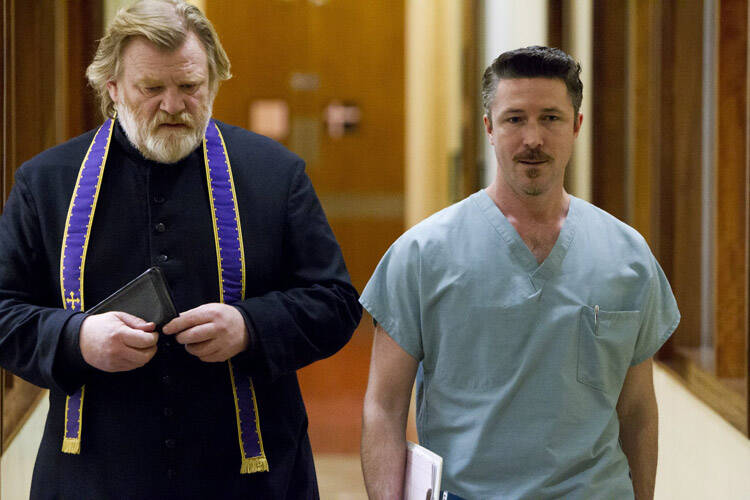The recently released movie "Calvary" is drawing comments in the Catholic world. Some bloggers from the canon law community are worried that the movie may mislead people about the secrecy of the confessional. The movie opens with a confession scene where a victim of sexual abuse by a priest tells the confessor he plans to kill him Sunday next. He figures that killing a good priest, Father James the confessor, played terrifically by Brendan Gleeson, would garner lots of attention.
However, as the local bishop declares, with the would-be murderer saying what he plans to do, not what he has done and with no remorse for the crime-to-be, and no sacramental absolution, this is no confession. Canonists can debate this, of course. And anything that even suggests that this is a sacramental confession when it is not sets many canonists' teeth on edge.
More importantly, however, the movie well presents the story of a parish priest dealing with existential realities such as the meaning of life and death. It also deals with practical problems of the modern cleric who ministers to a flock where many scorn him personally and Catholicism in general. They are a wounded lot and he their wounded healer.
This modern churchman is a recovering alcoholic, a widower with a rebellious daughter, and head of a parish in the west of Ireland. He knows pain. Meanwhile his parishioners include a wife abuser, prostitute, cynical doctor and a callous business tycoon. Other parishioners include those who have simply grown holy or hollow from life experiences. Father James's world is indeed a tough one, but his woundedness gives him the patience, courage, fidelity and other virtues that let him convey Gospel values in a murky world.
Like the proverbial wounded healer, Father James comes to exemplify the grace that leads to forgiveness ("Father, forgive them for they know not what they do") and sacrifice for others ("Into Your hands, O Lord, I commend my spirit") that are embodied in the movie's title. He finds his life threatened because of another's sin, child abuse. He accepts the undeserved humiliations of a priest living the Gospel in secular, modern day Ireland. He also accepts the fact that he only sometimes reaches his befuddled people, many Catholic in name only.
"Calvary" is drawing mixed reviews, but it will go down as one of the great Catholic films. It reflects the essence of the contemporary priesthood: to speak of holiness in a sometimes unholy world. More significantly, it heralds the heart of the Gospel where there is no greater love than to give up one's life for another.
And it's a good mystery, to boot.
Mary Ann Walsh, R.S.M., is U.S. correspondent for America.








